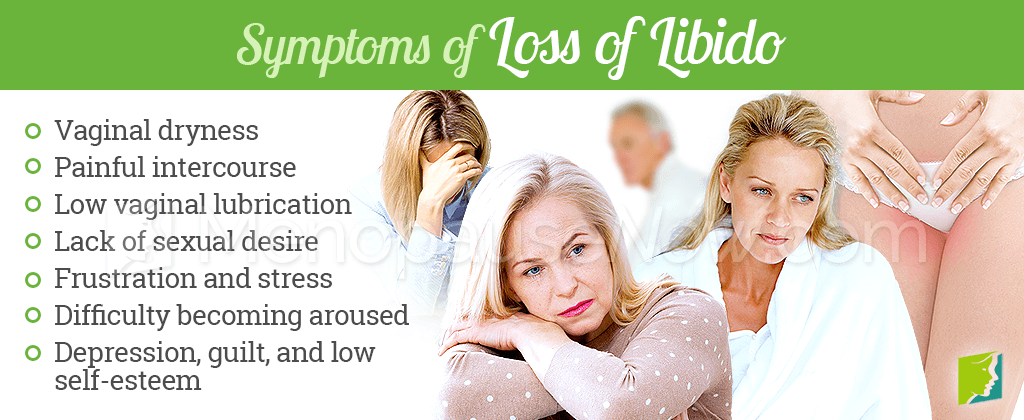Loss of libido can be one of the most difficult symptoms of menopause to manage, often because a woman might not understand how and why she has lost the desire to be physically intimate with her partner. While loss of libido can be challenging for a relationship, it is important to know that loss of libido during menopause is common, affecting up to 40% of women.
Fortunately, loss of libido, like most menopause symptoms, can be easily treated. Read on to learn more about how loss of libido is defined and what the signs and symptoms are in order to overcome this common aspect of menopause.
Loss of Libido Definition
The term "libido" has long been used to describe a person's sexual drive and their desire for sex. It follows then that loss of libido, medically termed "hypoactive sexual desire disorder," is a reduction or lack of interest and desire in sexual activity.
Loss of libido commonly occurs as women approach menopause, though it can happen at any point in a person's life for a variety of reasons, both physiological and psychological. Keep reading to learn more about the symptoms of loss of libido during menopause.
Loss of Libido Symptoms
Did You Know?
Remaining sexually active helps to preserve the elasticity of the vagina.
Loss of libido is chiefly characterized by a lack of interest or desire for sexual activity. Many women with loss of libido find that they are less in touch with their sexuality. Sexual feelings come less frequently and energy for sex drastically dwindles or disappears from a woman's life. A woman's partner may seem less sexually appealing. Responsiveness to sexual stimuli may also decrease.

While loss of libido differs from the inability to become aroused or achieve orgasm, menopausal women may also experience these symptoms of sexual dysfunction.
Other symptoms of menopause, such as vaginal dryness and fatigue, can also be related to loss of libido. When intercourse is painful as a result of vaginal dryness, loss of libido can occur.
Being aware of these symptoms can help a woman develop a better perspective on loss of libido. Now, with a clear understanding of what loss of libido is, it's time to learn about the underlying causes to become better equipped to deal with it and treat it. Keep reading to discover more about the causes of loss of libido in order to find a solution.
Sources
- National Health Service UK. (2014). Sex after the menopause. Retrieved January 28, 2016, from http://www.nhs.uk/Livewell/women4060/Pages/sex-after-the-menopause.aspx
- Office on Women's Health. (2010). Menopause and sexuality. Retrieved January 28, 2016, from http://womenshealth.gov/menopause/menopause-sexuality/
- Sarell, P. (1999). Psychosexual effects of menopause: Role of androgens. American Journal of Obstetrics & Gynecology., 180, 3S-II.
- Woods, N.F. , Mitchell, E.S. & Smith-Di Julio, K. (2010). Sexual Desire During the Menopausal Transition and Early Postmenopause: Observations from the Seattle Midlife Women's Health Study. Journal of Women's Health, 19(2), 209-218. doi: 10.1089/jwh.2009.1388



